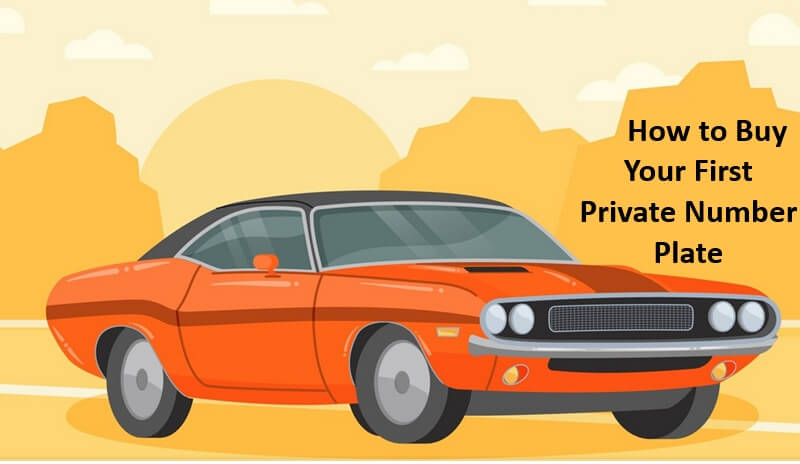A private number plate is a simple way to make your car feel more personal. Some people choose one to display their initials, a special date, or a meaningful word, while others go for something fun and unique. Another bonus? It hides your car’s age, making it look newer than it actually is.
Whatever your reason, buying your first private plate is an exciting process—but if you’ve never done it before, you might not know where to start. That’s where this guide comes in.
Where to Buy a Private Number Plate
There are several ways to get private number plates, but the best option is to buy from a private online seller. These sites offer a much wider range of plates than government databases or dealerships, and they often have competitive pricing. Plus, many provide a seamless transfer process, so you don’t have to deal with the DVLA paperwork yourself.
While you can purchase plates through car dealerships or directly from the DVLA, they tend to have a smaller selection, and you might end up paying more for something that isn’t as personalised as you’d like.
How Much Does a Private Plate Cost?
Prices vary massively depending on how rare or desirable the plate is. Some plates cost as little as £100, while others can sell for tens—or even hundreds—of thousands. If you’re just starting out, it’s best to set a budget before you begin browsing.
At the lower end of the scale, plates with random letters and numbers are the most affordable. If you want something that includes your name or initials, expect to pay a bit more. The rarest plates, like short combinations or words, can be incredibly expensive.
If you’re looking for a bargain, private sites often have great search tools that let you filter by price, so you can find something that suits your budget without sifting through thousands of options manually.
Understanding Plate Formats
Before choosing a plate, it helps to understand the different styles used in the UK. The most common are:
- Current style (2001-present) – Plates like AB12 XYZ, where the numbers show the car’s year.
- Prefix style (1983-2001) – These start with a letter indicating the year, followed by numbers and letters (e.g. A123 XYZ).
- Suffix style (1953-1982) – The opposite of prefix plates, ending in a letter that represents the year (e.g. XYZ 123A).
- Dateless plates (pre-1963) – These don’t have a year identifier, making them highly desirable (e.g. 123 XYZ).
Dateless plates are often the most expensive because they can be assigned to any vehicle and don’t reveal the car’s age.
Checking If a Plate Is Available
Once you’ve found a plate you like, the next step is checking if it’s available for sale. Most private online sellers have search tools that show whether a plate is in stock, and if not, they’ll suggest similar options.
If your ideal plate is already taken, you can try minor variations—switching numbers for similar-looking letters or changing the order slightly. There’s often a way to create something just as good with a bit of creativity.
How to Buy and Register Your Plate
The actual buying process is easier than many people expect. When you buy from a private dealer, they’ll usually handle most of the paperwork for you, but here’s what the process looks like:
- You purchase the plate, and the seller provides a retention certificate (V750 or V778).
- You assign the plate to your car through the DVLA website or by post.
- You get the physical plates made by a registered supplier.
- You update your insurance company so there’s no issue if you need to make a claim.
If you’re not ready to assign the plate straight away, you can hold it on retention until you’re ready to use it.
Legal Rules You Need to Follow
While private plates give you a lot of freedom, there are still rules to follow. The most important ones are:
- Plates must follow the correct font, spacing, and size requirements.
- You cannot make your car appear newer than it is—so no putting a ‘23’ plate on a 2018 vehicle.
- Your plate must be legally assigned to a vehicle or kept on retention—you can’t just own one for decoration.
Breaking these rules can result in fines, and in some cases, you could even lose the plate altogether.
Can You Sell a Private Plate in the Future?
Yes! If you ever decide you no longer want your private plate, you can sell it to someone else. In fact, some people buy plates specifically as an investment. If a plate is particularly rare or desirable, its value can increase over time.
Private number plate dealers usually offer selling services, connecting you with potential buyers and handling the paperwork. So, if you ever want to cash in on your plate, there’s always a market for it.
Is a Private Number Plate Worth It?
If you want to personalise your car, a private number plate is a great way to do it. Whether you’re after something simple like your initials or something more eye-catching, the options are endless. Buying from a private online seller gives you the best selection, the smoothest process, and often the best deals. So, if you’ve been thinking about getting one, why not start browsing? You might find the perfect plate waiting for you.



